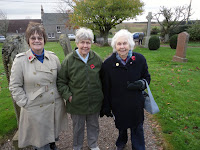 From the reliable British Religion in Numbers
From the reliable British Religion in NumbersLord Ashcroft’s latest large-scale political poll, conducted online among 8,011 voters between 11 and 22 August 2016, included his customary question about professed ‘membership’ of religious groups.
.... the proportion identifying with no religion has increased steadily in similarly-sized Ashcroft surveys for the second half of each year since 2011, by almost five points over this quinquennium.
There has been a corresponding reduction in self-identifying Christians, who seem destined to lose their overall majority share within a matter of years. Indeed, religious nones are already in the ascendant among under-35s and supporters of green and nationalist political parties.
 |
| Henry VIII created the Church of England by his demand that the clergy submit to him. |
Hand-wringing and prophecy
I don't think I'm defeatist; I think we should face reality.That reality is that religion is losing traction across the population. Inevitably this is uneven: some geographic areas, some age groups, some traditions will lose people quicker than others. Here and there affiliation to religion will grow. But the overall trend is decline.
This is not merely that people don't like religion, or see its faults and failings and decide it's not for them, or that they simply see the worst expressions of faith.
It's more fundamental:
- Fewer people think in religious ways
- Metaphor is no longer a legitimate or normal way to express or explore truth
- Conformity is not a positive value
- Always-on social media is not conducive to prayer and meditation
- It is hard to see religious experience as integral to the digital world
- Science has a mind-set which normally regards religion as irrelevant (at best). Furthermore: science delivers knowledge and tangible benefits that religion cannot match
- Religion is associated with (even identified with) fanaticism and violence, and at best social conservatism
 |
| Non-church-going: its reasons and remedies, William Forbes Gray (ed), 1911 |
Each response has no doubt had some effect and been valuable for those involved - and without them things would probably have been worse - but still the trend is towards the marginalisation of Christianity.
The Church of England
The Church of England, in which I have a vested and pecuniary interest, seems to be losing affiliation more rapidly than some other groups (or, maybe, I just notice it more).In fact all those things in which its identity is invested are just those things which make the CofE unable to adapt to changing circumstances,
The CofE remains hobbled and encumbered by its legal processes, its laws and legalism, its parochialism, its history, its hierarchical structure, its buildings, its entrenched divisions. Its structure militates against novelty.
Even the most ardent supporter could not call it 'nimble'. Long before he became Archbishop of York John Sentamu described the CofE as having 'the engine of a motor mower and the brakes of a juggernaut'. It is an entirely reasonable for the leaders of the church themselves to create extra-mural ways of communication, mutual support and commitment (Companions of St Aidan, for example) as a way of getting around the constraints they work within.
Realism
I accept: one person's realism is another's defeatism. But I cannot see that tinkering at the edges of the CofE is going to save it. I think that if the Church of England is going to live it is going to have to die first. We don't need a new reformation but a resurrection: a new body, a new identity.
Paul Bagshaw























